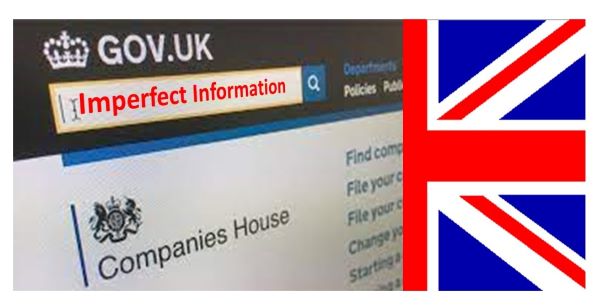The UK Mail on Sunday is calling for reform at Companies House to reduce fraudulent behavior.
Company Watch supports any reform that will promote better source data quality and close any loopholes which can be exploited by potentially fraudulent companies. Company Watch CEO, Jo Kettner, has been quoted in the Mail on Sunday in support of the reform and warns that a lack of trust in the information on which companies decide whether to extend credit to buyers can have an adverse impact on trade.
 VICTIMS BACK OUR ANTI-FRAUD CAMPAIGN Says Jo Kettner of Company Watch
VICTIMS BACK OUR ANTI-FRAUD CAMPAIGN Says Jo Kettner of Company Watch
The boss of credit reference firm Company Watch warns that lack of trust in the information on which companies decide whether to extend credit to buyers can have an adverse impact on trade.
‘Wary firms may restrict the supply of trade credit on which the economy depends,’ says Jo Kettner. She backs The Mail on Sunday’s call for reforms to Companies House to be enacted soon.
She says better collection of data would help, adding: ‘Revenue & Customs and Companies House do not always work together. That means a firm can file one set of accounts to the Revenue to make it look as if it did not make a profit and so does not need to pay tax. ‘It then sends another set of accounts to Companies House that make it look profitable so it is able to borrow credit.
‘Also, as a result of poor quality data, a company can have a county court judgment against it without this appearing on the public record.’ On Friday, Companies House said there were 4.7million companies on the register and that the vast majority abide by the law, though it admits that UK corporate entities are used to enable fraud, and says it is working closely with law enforcement agencies to tackle it.
It added: ‘Basic checks are undertaken on any documents received to make sure that they have been fully completed and signed. But we do not have the statutory power to verify the accuracy of the information filed.’
This has not been the first time this issue has been raised. See our recent article ‘Is Public Sector Information Failing Us?’
According to the article people continue to struggle to have their names and home addresses removed from bogus firms registered at Companies House by fraudsters. Experts warn that fake information posted on the official register of UK companies is leading to small firms being scammed out of thousands of pounds.
Last month, The Mail on Sunday reported that tens of thousands of people are unknowingly having firms set up in their name by fraudsters who shockingly use the details to take out loans or swindle consumers.
Despite promises by the Government to beef up its powers, Companies House is powerless to check the veracity of information supplied by those forming a new firm. As a result, its register is littered with false data. Since our report, we have been deluged with correspondence from victims and experts worried at the inability of Companies House to tackle this mountain of fraudulent information.
Tens of thousands of people are unknowingly having firms set up in their name by fraudsters who shockingly use the  details to take out loans or swindle consumers. Thus why is Companies House accepting false information without any verification?
details to take out loans or swindle consumers. Thus why is Companies House accepting false information without any verification?
Source: Company Watch and Mail on Sunday
 BIIA editorial comment: The UK has always had an exemplary public sector information system allowing credit markets to prosper and to limit trading risk. Based on what has been said in previous articles, and further accentuated in the recent article, indicates an alarming picture of an increase in information asymmetries to the detriment of the UK’s credit system.
BIIA editorial comment: The UK has always had an exemplary public sector information system allowing credit markets to prosper and to limit trading risk. Based on what has been said in previous articles, and further accentuated in the recent article, indicates an alarming picture of an increase in information asymmetries to the detriment of the UK’s credit system.
One should heed the advice of the American economist Joseph E. Stiglitz who stated many years ago that “Imperfect information make imperfect markets,” meaning that informational imperfections have fundamental implications for the way product markets function”. In other words it increases risks for businesses and consumers.
The problems with fraudulent filings of companies with fictitious owners and beneficiaries reflects the imperfections Joseph E. Stiglitz was writing about. Therefore it would be wise for the guardians of Companies House to heed Stiglitz’s advice to fix the problem before it becomes a credibilty issue, not just for the Companies House, but for the UK’s credit system. BIIA’s editor admires Jo Kettner, CEO of Companies Watch who seems to be one of the lone voices concerning this issue.
The above comments reflect the opinion of BIIA’s editor and may not necessarily reflect the position of other members of BIIA.


























